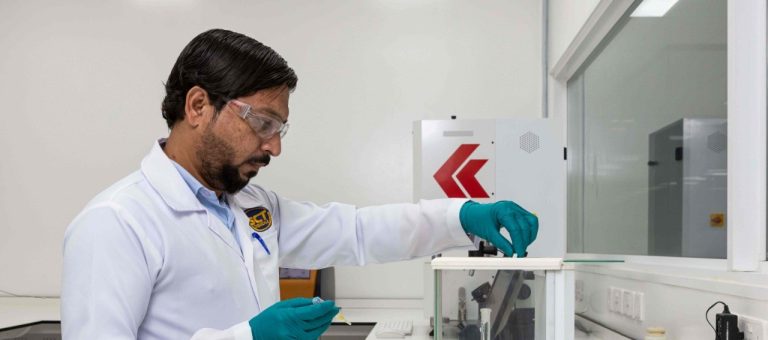Land management doesn’t look like it used to… A decade ago, clearing a site meant heavy machinery, long hours, and even longer fuel bills. Crews often relied on multiple machines, trucks, and manual labor to get a project moving. Coordination was messy, downtime was frequent, and costs piled up quickly. Now, one operator and a well-built mulcher can take on acres, with precision, less mess, and far less environmental impact. What used to take days or even weeks can now be done in hours, without compromising quality. Across construction, forestry, and infrastructure projects, the way we manage terrain is evolving. Efficiency isn’t just about speed anymore—it’s about doing the job smarter, cleaner, and with minimal impact on the environment. Mulchers have become the workhorse at the center of this shift. Compact yet powerful, they allow operators to clear land quickly while maintaining soil integrity and leaving behind a manageable, natural layer of mulch. This not only makes follow-up work easier but also sets the stage for better land use and faster project completion. Smarter Land Management Isn’t a Choice Anymore Ask anyone in construction or land development, and efficiency has become the new survival skill. Deadlines are strict, margins are thin, and sustainability isn’t just a line in a report anymore; it’s a requirement on the ground. Every project is under pressure to deliver results without creating unnecessary waste, soil damage, or delays. That pressure has pushed teams to think differently. Traditional land-clearing methods—hauling debris offsite, burning vegetation, or overworking the soil—simply don’t fit modern expectations. They’re time-consuming, environmentally harsh, and often expensive. Modern projects demand equipment that doesn’t just perform but adapts seamlessly to varying terrains, densities of vegetation, and weather conditions. Mulchers quietly win this battle. They bring something that’s becoming rare in the industry: speed without compromise. Operators can clear dense underbrush, small trees, and thick brush quickly, while keeping the land ready for its next use. And because these machines are so versatile, one piece of equipment often replaces multiple others, reducing fuel consumption, manpower, and overall project costs. That simplicity alone is transforming project planning and resource allocation on every site. Why Everyone’s Talking About Mulchers If you’ve searched for a mulcher for sale recently, you’ve probably noticed the buzz. The demand isn’t hype—it’s based on real results on the field. A good mulcher doesn’t just cut vegetation; it transforms it into fine mulch immediately. That leaves behind a tidy, even surface that’s ready for planting, construction, or landscaping. No piles to haul away. No burning or additional cleanup required. And fewer machines on the ground mean less fuel used, lower emissions, and a safer working environment. It’s one of those pieces of equipment that just clicks once you see it in action. Crews save time, operators gain better control, and projects flow with fewer interruptions. For contractors managing multiple sites simultaneously, that kind of reliability is invaluable. A single mulcher can often handle tasks that used to require several specialized machines and more personnel. That’s efficiency at its best. And over time, that efficiency compounds—less wear and tear, fewer delays, and more predictable project timelines. Sustainability That’s More Than a Tagline Here’s the part that often gets overlooked: mulchers aren’t just about making work easier—they actively support greener practices. By grinding vegetation into nutrient-rich mulch, they protect soil from erosion, retain moisture, and reduce the carbon footprint associated with traditional clearing methods. Ground that was once scarred by bulldozers and trucks can now recover quickly, and replanting becomes far simpler. Reputable manufacturers have embraced this mindset, designing machines that respect the environment while delivering the muscle needed for tough jobs. The result is a rare balance: machines that are both powerful and responsible. The leftover mulch improves soil health, reduces the need for chemical treatments, and supports a healthier ecosystem, whether it’s a commercial site, a forest, or farmland. Even small adjustments, like optimizing the rotor speed or teeth configuration, can enhance the mulch quality and further reduce environmental strain. Innovation That Works in the Real World It’s easy to throw around terms like “advanced” or “next-gen,” but with mulchers, innovation is tangible. Modern designs handle heat better, run longer, and allow operators precise control even on uneven or rugged terrain. Attachments can be swapped quickly to adapt to the density of vegetation or type of land. What sets leading mulchers apart isn’t just technology—it’s usability. Operators consistently report smoother handling, less downtime, and machines that perform reliably in tough weather or dense brush. This real-world functionality is what separates top-tier mulchers from ordinary models. They work as hard as the crews who operate them, often in conditions that would stall less capable equipment. And because they are engineered with attention to wear-resistant parts, maintenance becomes simpler and costs are more predictable over time. The Road Ahead Mulchers aren’t just a trend—they’re a turning point in land management. As construction, forestry, and infrastructure projects continue to demand efficiency, sustainability, and reduced environmental impact, these machines are proving their worth on every site. The future of land clearing is cleaner, smarter, and more efficient, and companies like Fecon are at the forefront, designing equipment that meets modern demands without compromise. Progress isn’t just measured by what gets built, but by how responsibly it’s done—and mulchers are leading the way. With continuous improvements, better ergonomics for operators, and smarter attachments, the possibilities for sustainable land management are expanding, showing that innovation and care for the environment can go hand in hand.








